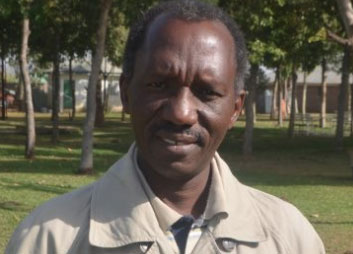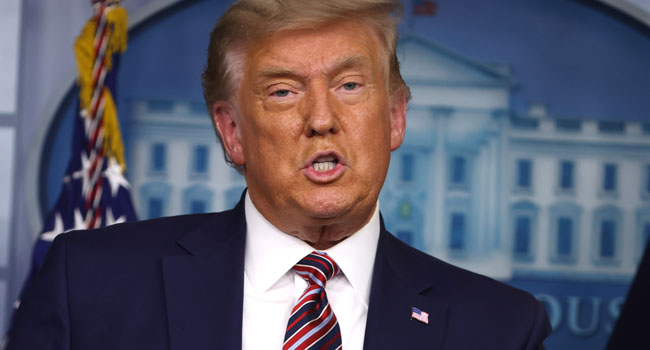Lockdown: Between Mosques and Markets

By Dr Aliyu U. Tilde
The scenes of locked mosques on Fridays and shut down churches on Sundays are not portraits to behold by the religious in ordinary times. But our times are not ordinary. So governments have decided to seal them pending when they can be safely opened without constituting an avoidable danger to public health.

I have read and heard a number of people equating mosques and markets in relation to lockdown during this pandemic. The question they always ask is the same: Why would the once a week, 10-minute Friday prayer be banned while markets are open for hours many times a week? Many of them have even gone ahead to accuse that it is a deliberate attempt to undermine religion. The truth is there is some exaggeration here. There just cannot be a Friday congregation that lasts only 10 minutes. It is impossible. The least it can take from opening the mosque to closing it is 40 mins to one hour. I bet you.
Reason
We are all entitled to our opinion especially in matters that are yet to come. When death is not at hand, debate becomes a past time of men. When it arrives, it leaves no room for contention and everyone takes to his heal even when the muezzin would be calling the faithful to prayer. Yes, corona virus is yet to reach many communities and their inhabitants can afford the luxury of debate. But we should be intelligent enough to learn by instruction, not by experience.
Age also matters here. I have not heard any sixty and above gambling with corona virus for the obvious vulnerability of their group. Most of the contention is held by the young who know that they are less vulnerable. It is a luxury granted by the geography of the disease. In cities where it is ravaging, people are packing their healthy aged parents into hideouts, preventing anyone from visiting them. No question of congregational prayer. If you do not have an aged parent and feels young, please have mercy on the parents of others. Do not drag us to the slaughter house. Have some pity. Oh young men!
Economics too plays some part in the agitations. Many places of worship have been turned into shops from where the clergy siphon money of the poor laity. Some are even open on this. Closing the mosque or church for them means closing shop at peak-season. The agitation in some quarters is not without its survival instinct, which is natural, any way.
Differences
On the surface, markets and prayer congregations may appear similar in that they both gather people from different places. But a scratch underneath reveals a world of difference between the two, especially in Africa. Let us take a look at some of such differences that engender their differential treatment in our fight against corona.
1. The first is that markets are optional to many and hardly attract the majority. In a family if 8 males, fewer than 3 may go to a market for the whole week. Most are on farms or offices or are living in rural communities where the markets are less congested. Old people like me hardly visit markets. We send others.
The Friday congregation, for example, on the other hand is compulsory on all adult males and is attended also by most children of seven years and above. The per capita coverage of Friday prayer is therefore much higher than that of a market. Elders, from experience, who are most vulnerable to the virus usually go there first and stay much longer because they can afford more time.
Imagine Kano on Friday or any muslim dominated town. The whole town becomes empty during those thirty minutes to one hour. All males have converged into few spots in the town or city where they will sit together, body to body, in rows, not more than a meter apart, some coughing, some sneezing and all breathing at one another point blank, and end in greeting one another before departing. They leave as they came, in long procession, speaking, chatting, shaking hands, until they reach home.
2. Secondly, markets are more dispersed in time and space than places of worship. People go to markets at different times. The three in a family of eight males that we mentioned will rarely be in the market on the same day of the week. And even when they go, they hardly visit the same place. Friday and Sunday congregations take place at the same time and spot. That is why there is little wisdom in allocating just a day or two as free days in a lockdown. In such days, markets mimick congregations and become perfect inoculation centres for the virus. If they must open, which they should, market days should be more numerous.
3. Three is the architecture of the two spaces. Markets are mostly open and divided into shops. The space per capita is higher. Mosques and churches keep the majority in enclosures: large rooms with high human density, which become stuffy before the congregation ends. They are hardly habitable to such large numbers of people except for the aided ventilation of ceiling fans and ACs, which aggravate the dispersal of the virus. The germ from a single cough is carried by the strong wind of the ventilator to several meters before it finally drops on the floor or on another human – if it is not lucky to be inhaled already.
4. The fourth is the statistics. There are more mosques and churches in Africa than there are markets. The advent of Pentecostal churches and Pentecostal mosques have not helped matters. Friday mosques and Sunday churches are found in all communities, while markets of the Covid-19 dream are found only in few. It means that if you prevent congregations, you are blocking more inoculation sites than you would with markets.
5. Fifth, comes necessity. Religious congregations are not as compelling as are markets. God has provided alternatives to worship centers in the face of danger to life. Why must we be more Catholic than the Pope. Why do we seem to like the religion more than its Inventor who revealed it to us? People can pray in their homes or neighborhood mosques in place of a Friday congregation. Even the prayer can be abandoned to save life or property, said the scripture. As we have seen, markets cannot be closed for a long period. They have to be opened to enable access to livelihoods. Unless the pandemic becomes so acute, we can do without long closure if markets.
6. Sixth difference is economics. Closing markets in an agrarian economy can be catastrophic. The loss to farmers that cultivate perishable crops like tomato or marketers that deal in meat or milk will be devastating. Beyond that, closing businesses for a long time means ruining income of the majority. Earnings in the non-formal and private sector will stop for many. Poverty, the immortal friend of disbelief, will abound. Faith will be in danger. The devil will persuade the affected to question why God allowed such a catastrophe to befall them. Markets must, therefore, even in the interest of faith, be opened as many times as the situation permits while we continue speaking to the considerate Almighty from the comfort of our homes. What could be more beautiful?
7. Finally, the seventh: the arithmetic. If both markets and congregations serve as high inoculation sites for the virus, which is wiser: giving the virus two chances or allowing it one only? Imagine both sites are opened – more people will contract the virus than when only one is opened. If majority of people are given a choice on which to open and which to close, I have no doubt that the majority will be persuaded by reason and compelled by necessity to open the markets and close the congregations. That is the choice of government. The natural choice.
Context
What I said above is valid in the context of Africa. That is the context that informed the decision of government, I suppose. Africa is where life does not matter. We are reckless about it. No danger is acknowledged, no rule is obeyed, no instruction is followed. Permit that a congregation should not be more than fifty and thousands will troop in without a single face wearing a mask. Command us to observe a social distance of six feet and we will stand cemented to each other, as it were, in rows, pretending piety when we cannot keep a trust of a kobo. Say that borders are closed, we will take very pain in following bush paths and bribing border officials to cross. Death is remote, until it hits us.
These are the reasons why governments block as many pathways of the virus as possible. That is why they banned congregations other than the daily prayers in small neighborhood mosques – with sanitation measures and social distancing. And under extreme conditions, even those will be banned too. But I do not think Covid-19, unlike the notorious Spanish Flu, poses that kind of threat.
Suggestions
I have three suggestions here:
First, to me, neighborhood and perishable items markets should be enough under different grades of lockdowns. Large all-purpose markets that are the dream of Covid-19 should be closed during pandemics and opened only sparingly. For future town planning purposes, neighborhood markets should gain more emphasis.
Second, we need to give life a higher premium even where we do not feel much endangered. The empathy for the vulnerable must be cultivated in our hearts. The elites must be the vanguard of this empathy rather than treading the populist path of the majority in times of danger. The battle with Covid-19 has reached the individual level, coming down from the level of lockdowns. The survival of many of us depends on our conduct: how much we keep to the advice of health professionals in all ramifications of social distancing and hygiene. Let us remain at home as long as possible and venture outside as short as is necessary.
Third, governments must intensify testing and surveillance activities. Given the wealth that will warrant us renovate the National Assembly Complex at N38billion in addition to other wastes that we can afford to do without at all levels of government, I was expecting that we should by now have at least one testing centre in every state and several sample collection units, mobile and stationary, in every local government. That we are still at the stage of providing only one testing laboratory per zone where test results are delayed for weeks against which detained patients are protesting speaks volumes about our self-inflicted impotence. Let us do more, for this and future pandemics.
Conclusion
The decision of governments worldwide to ban prayer congregations – from Mecca to The Vatican – is informed by dictates of public safety. As done in Turkey, the ban will be lifted when it is no longer necessary, upon the right advice of health professionals who take the lead on matters relating to the pandemic. Even in the interest of faith, markets must be opened as long as necessary to avoid scaling up poverty, the partner of unbelief.
However, the biggest markets to open are our hearts to reason and our brains to wisdom. Let us endeavor to lockdown ourselves individually as long as possible and follow the rules of the pandemic game as much as we can, if not for ourselves, but in empathy for the vulnerable among us. We used to boast, in spite of the deaths, that there is no disease in Africa. Let us for once reason that today there is at least one: Covid-19. Conceding that and facing its challenges is the beginning of wisdom.
As we were closing a stakeholders meeting two days ago, a report came that an Imam and his muezzin tested positive for corona-virus. God save the congregation.
Dr. Aliyu U. Tilde
Bauchi
9 May 2020









